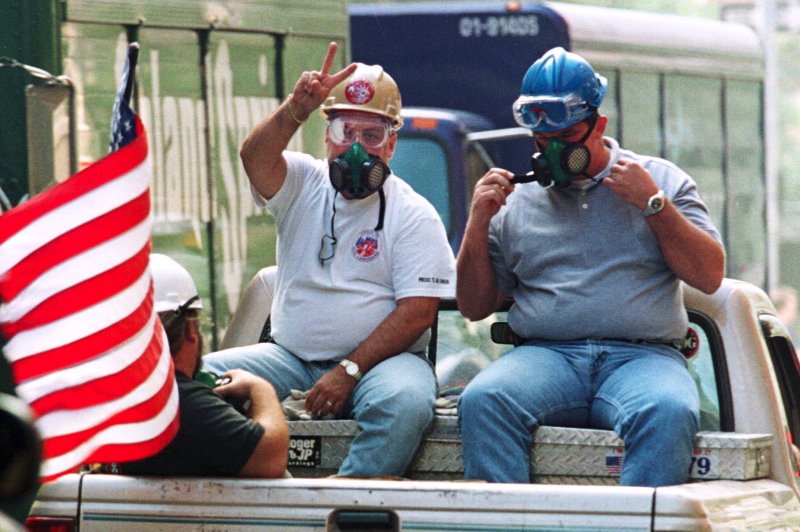Dust from the World Trade Center, which contained metals and organic compounds like polycyclic aromatic hydrocarbons and polychlorinated biphenyl, may have triggered chronic inflammation in the prostates of responders, researchers say. Photo by rlw/Monika Graff/UPI |
License Photo
June 21 (UPI) -- Responders to the World Trade Center on Sept. 11, 2001, were exposed to dust that may play a role in their developing prostate cancer, new research shows.
The dust, which contained metals and organic compounds like polycyclic aromatic hydrocarbons and polychlorinated biphenyl, may have triggered chronic inflammation in their prostates, according to a study published Friday in Molecular Cancer Research.
The study's researchers wanted to study dust from the World Trade Center after the attack to try to prevent prostate cancer in responders.
"World Trade Center responders show an overall increase in cancer incidence, and specifically of certain cancer types such as prostate cancer," Emanuela Taioli, Director of the Institute for Translational Epidemiology at Mount Sinai and study author, said in a news release. "It is important to address the reasons why this is happening in order to prevent new cases in this aging cohort. Our findings represent the first link between exposure to World Trade Center dust and prostate cancer."
The researchers pulled data from two previous studies that explored dust exposure by responders and rats at Ground Zero. Tissue from humans and the animals show inflammation in the T helper immune cells, and further analysis showed chronic inflammation began directly after exposure to the dust.
This work and future research on environmental exposures that cause inflammation may help identify inflammatory or immune-targeted therapies to treat prostate cancer.
"Several years ago, I saw a first responder in his 40s who began having symptoms of prostatitis, a painful condition that involves inflammation of the prostate, soon after exposure to the World Trade Center dust," said William Oh, Deputy Director at The Tisch Cancer Institute and study author. "He ultimately developed a high-grade prostate cancer several years later. It suggested to me that there might be a link between his exposure and cancer, but I knew that I would need to examine it systematically."















